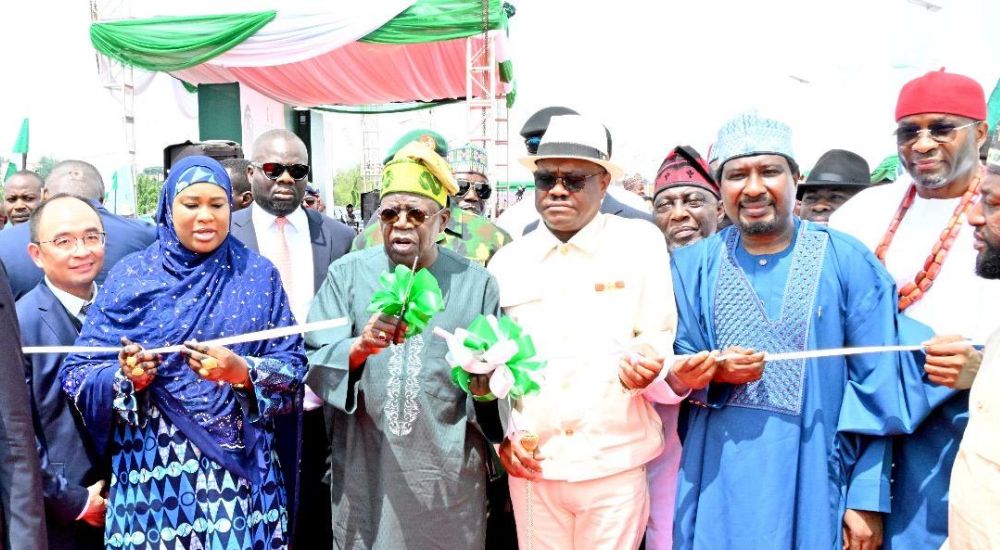IPPG Hails NUPRC’s Handling Of IOCs Divestments, Pledges Reforms Support

The Independent Petroleum Producers Group (IPPG) has hailed the Nigerian Upstream Petroleum Regulatory Commission’s role in facilitating the recent divestments of oil and gas assets by International Oil Companies.
The commendation was made when a delegation from the Independent Petroleum Producers Group visited the NUPRC headquarters in Abuja.
The visit was led by IPPG Chairman, Mr. Abdulrazaq Isa, who also serves as the Chairman of Waltersmith Group, an indigenous oil and gas company.
The oil and gas sector has experienced about for major divestments by international oil companies (IOCs) under President Tinubu
Eni had sold its onshore Nigerian assets, including four oil mining leases (OMLs), to Oando in August 2024 for about $783m. This deal significantly expanded Oando’s production capacity to around 50,000 barrels of oil equivalent per day.
ExxonMobil divested its shallow-water and onshore business—Mobil Producing Nigeria—to Seplat Energy for $1.28bn. The long-delayed deal was approved in December 2024 after Tinubu’s intervention, and Seplat plans to increase production from about 50,000 to 120,000 barrels per day.
Equinor exited Nigeria by selling its 54 per cent stake in the Agbami field (OML 128) to Chappal Energies for approximately $1.2bn in late 2024.
Shell received government approval in late 2024 to divest its onshore assets (SPDC) to Renaissance Africa Energy for $2.4bn, marking a strategic shift to deepwater operations.
These transactions have boosted Nigeria’s crude production to about 1.7 million barrels per day and accelerated the shift from IOC-dominated onshore operations to greater indigenous control.
Local firms now control a growing share of national output, possibly up to 70 per cent.
The IPPG visit was a strategic engagement aimed at strengthening collaboration between the Commission and indigenous producers.
It also served as an opportunity for the IPPG to formally express its appreciation to the NUPRC for the critical role it played in facilitating the recent divestment of assets by international oil companies.
These divestments, which were closely overseen by the Commission, have enabled a significant transfer of upstream oil and gas assets to indigenous operators.
This transition marks a pivotal shift in Nigeria’s energy landscape, creating new opportunities for local companies to scale up operations.
During the meeting, the IPPG reaffirmed its commitment to supporting the Commission’s “Project One Million Barrels Incremental” initiative—a program designed to boost Nigeria’s daily crude oil production.
The group emphasized its readiness to align with this national objective and highlighted its dual focus on both oil and gas development.
In his remarks, the Commission Chief Executive, Engr. Gbenga Komolafe, welcomed the delegation and reiterated the NUPRC’s dedication to creating an enabling business environment.
He outlined several key policies implemented since the enactment of the Petroleum Industry Act (PIA), including the automation of regulatory processes such as granting of licenses and permits which has significantly reduced bureaucratic delays and improved operational efficiency across the sector.
Komolafe also discussed the implementation of the “drill or drop” policy which requires operators to either begin production within a specified timeframe or relinquish their licenses.
This policy aims to revitalize the oil sector, ensure optimal use of assets, and boost government revenue.
The CCE noted that these policies have already begun to yield tangible results, citing a significant increase in rig activity—from 11 rigs prior to the PIA to 42 rigs currently in operation.
This surge reflects growing investor confidence and a revitalized upstream sector.
He also emphasized the Commission’s ongoing efforts to promote transparency, accountability, and anti-corruption measures across the industry.
The CCE encouraged continuous dialogue and honest feedback from industry stakeholders, stressing that such engagement is vital for finetuning regulatory frameworks and ensuring that policies remain responsive to the evolving needs of the sector.
In response, the IPPG acknowledged the positive impact of these reforms, noting increased confidence in the Nigerian upstream sector both domestically and internationally.
The meeting underscored the importance of collaboration between regulators and indigenous producers in achieving Nigeria’s energy and economic aspirations.
ENDS
IPPG Hails NUPRC’s Handling Of IOCs Divestments, Pledges Reforms Support is first published on The Whistler Newspaper




